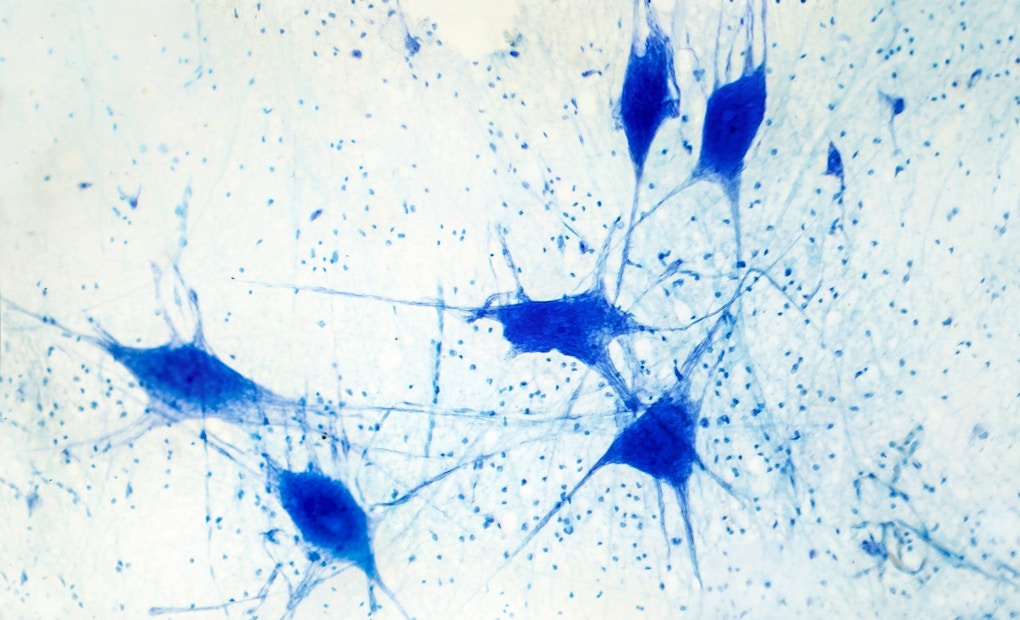
Dr_Microbe/iStock
The Simons Foundation Autism Research Initiative (SFARI) is pleased to announce that it intends to fund four grants in response to the Analysis of postmortem brain tissue from the Autism BrainNet collection request for applications (RFA).
Investigators awarded through this RFA will use human postmortem brain tissue donated to Autism BrainNet to conduct studies that will advance the understanding of the biological mechanisms of autism spectrum disorder (ASD).
SFARI plans to commit approximately $7 million through this RFA over the next two years. The projects selected for funding in this RFA will investigate differences in the structure and molecular composition of the brains of people with autism by examining changes in gene expression in cortical and subcortical regions, somatic mutations, cell types and connectivity. A variety of methodologies will be employed, including genetic and molecular analyses, histology, machine learning and neural network analysis.
“Studies of human brain tissue are critical to better understand autism, which is a human-specific condition affecting the brain,” says Marta Benedetti, SFARI senior scientist and Autism BrainNet managing director. “The projects awarded through this RFA will address questions that can be uniquely answered through the examination of brain tissue. We are grateful and indebted to the families who donated tissue, and we are looking forward to learning as much possible from their unique gift.”
SFARI intends to fund the following projects:
Daniel Geschwind, M.D., Ph.D. and Michael Gandal, M.D. Ph.D. (University of California, Los Angeles), and Dorothy Schafer, Ph.D. (UMass Chan Medical School)
Topology of cortical and thalamic gene expression changes in autism
Genevieve Konopka, Ph.D. (University of Texas Southwestern Medical Center)
Cellular resolution multi-omics of white matter tracts in autism
Christopher Walsh, M.D., Ph.D. (Boston’s Children Hospital) and Peter Park, Ph.D. (Harvard Medical School)
Identification and impact of somatic mutations in regulatory regions in autism brain
Vasileios Zikopoulos, Ph.D. (Boston University) and Arash Yazdanbakhsh, M.D., Ph.D. (Boston University)
Classifying axon pathology in autism using machine learning and deep neural network analyses
Autism BrainNet collection and resources
Autism BrainNet is a collaborative network of academic sites that collects, stores and distributes brain tissue for autism research. This resource is intended to support the highest-quality and most rigorous research into the underlying genetic and neuropathological mechanisms that contribute to ASD and related neurodevelopmental conditions.
The Autism BrainNet collection currently comprises 283 donations (details can be found here). A subset of brains, which is part of the Autism BrainNet Celloidin Collection, has been sectioned and stained for stereological analysis. Clinical data including medical records, psychological evaluations, educational records, autopsy reports and other information about the donors are acquired during the brain donation process.
This year, Autism BrainNet has partnered with the New York Genome Center to genetically characterize the brains donated by individuals with autism and related neurodevelopmental conditions, using whole exome sequencing, whole genome sequencing and genotyping. Data from brains from donors with autism and related neurodevelopmental conditions are currently available to interested researchers and can be requested through SFARI Base.
Applications to request tissue and associated data can be made through SFARI Base.
Additional information about the collection can be found in the Autism BrainNet Tissue Catalogue.
Correction: A previous version of the announcement erroneously included Silas Maniatis and Jeremy Veenstra-VanderWeele in the SFARI-intends-to-fund list.


